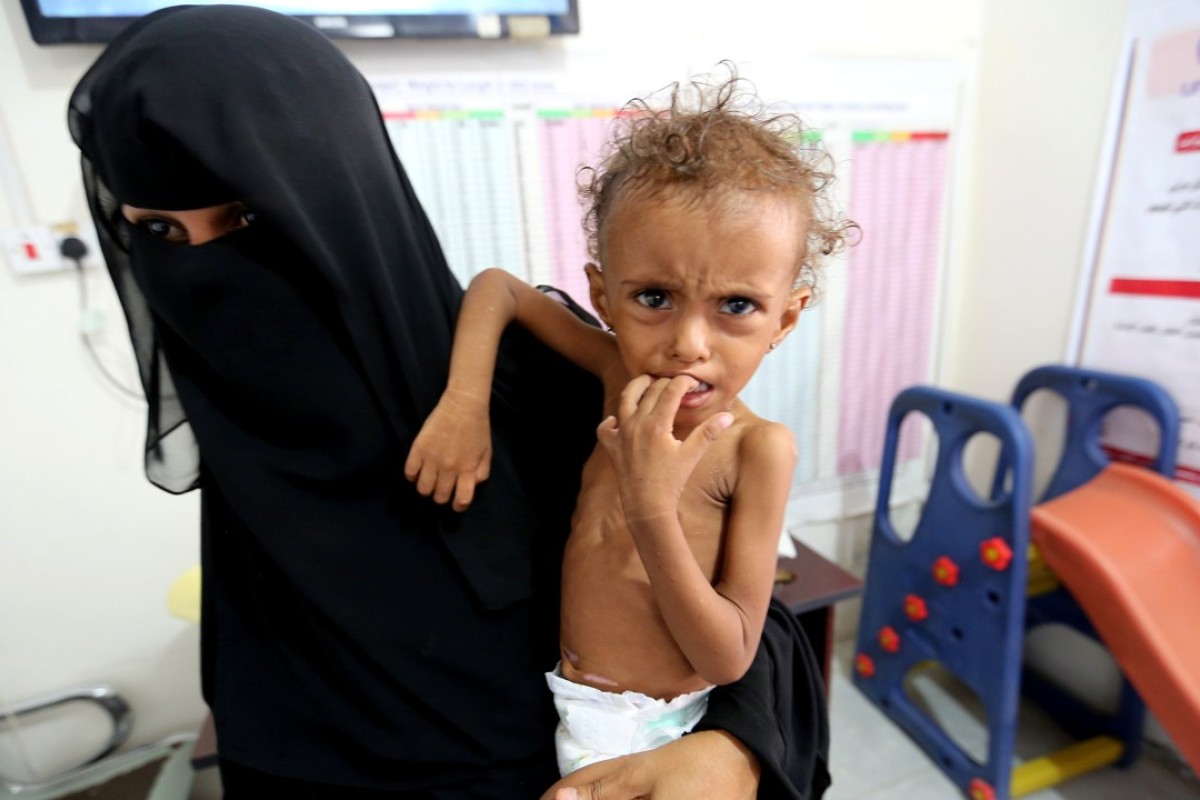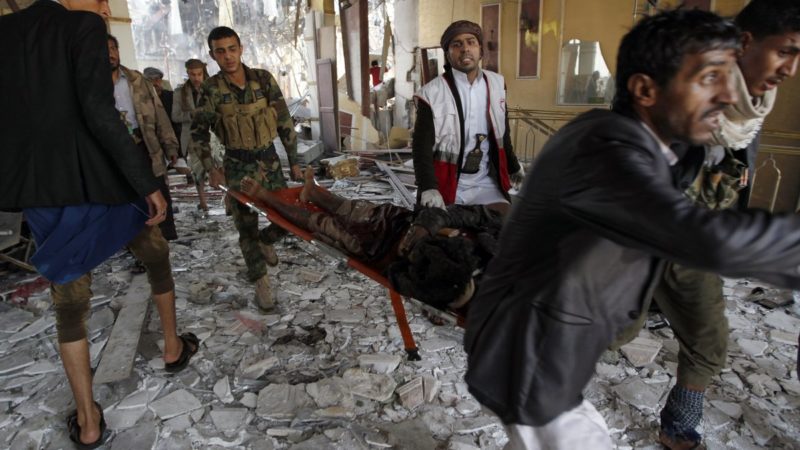

Al-Mashat is head of the so-called Supreme Houthi Political Council in a recorded speech broadcast by the movement’s Al-Masirah television.
Yemen’s Iran-linked Houthi rebels said late Friday that they will stop aiming missile and drone attacks at Saudi Arabia, warning that a continuation of the war could lead to “dangerous developments”.
The Houthi rebels have claimed recent attacks on major Saudi oil facilities.
“We hope Riyadh will respond in a positive way to this initiative.
”And if Saudi Arabia does not respond to the initiative and resumes bombing, we will have the right to respond to it,” said Mahdi al-Mashat.
Al-Mashat called on the international community to stop what he described as “its abusive practices” and its underestimation of the suffering of the Yemeni people.
Al-Mashat called for immediately lifting the ban on Sana’a airport and to cease intercepting ships heading to Hodeida port.
The Houthi official stressed that “the continuation of the war will not be in anyone’s interest and may lead to serious developments.”
Earlier Friday, a Saudi-led military alliance fighting the Houthis in Yemen said that it had mounted airstrikes against the rebels.
A spokesman for the coalition, Turki al-Maliki, said the alliance had carried out an operation against “hostile” Houthi targets north of the coastal province of Hodeida in western Yemen, according to the Saudi news agency SPA.
Al-Maliki accused the rebels of using Hodeida for launching ballistic missiles, drones and remote-controlled explosive boats and deploying naval mines.
He added that the alliance had a “legitimate right to take and implement the appropriate deterrence measures with these legal military targets.”
Rebel spokesman Mohammed Abdel-Salam called the strikes a “dangerous escalation” that undermine a UN-brokered ceasefire agreement reached in Sweden last December.
“The alliance has to bear consequences of this escalation,” Abdel-Salam added in a press statement.
Tensions have run high since the weekend after the attacks on Saudi oil facilities.
Saudi Arabia and the United States have blamed the attacks on Iran. Tehran denies involvement.
In Beirut, the chief of Lebanon’s pro-Iranian Hezbollah movement, Hassan Nasrallah, advised Saudi Arabia to stop its years-long military campaign in Yemen.
“It proves to us that oil is more expensive than blood,” Nasrallah said, referring to the attack on the Saudi oil sites.
He added that no one was killed in the attack, while thousands have been killed in Yemen’s war.
Saudi Arabia and the United Arab Emirates have led the campaign in Yemen against the Houthis since March 2015.
“Stop betting on the Americans and their failed administration,” Nasrallah said, addressing Saudi Arabia.
“It will be less costly for the Saudis and the Emirates to protect their installations by stopping the war on the Yemeni people,” he added at a ceremony in southern Beirut.
In recent months, the Houthis have launched a string of drone and missile attacks into Saudi territory, which the rebels say are to defend themselves against the coalition’s strikes.
The power struggle between the Saudi-backed government and the Houthis has left Yemen, already one of the Arab world’s poorest countries, with a famine and massive damage to infrastructure.
No comments:
Post a Comment